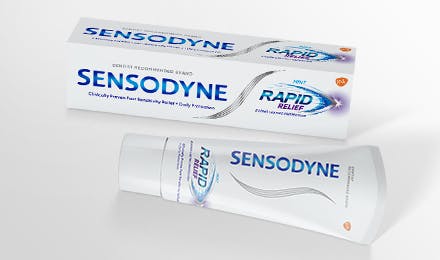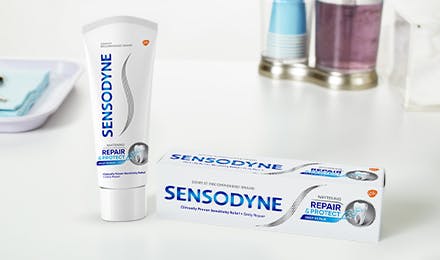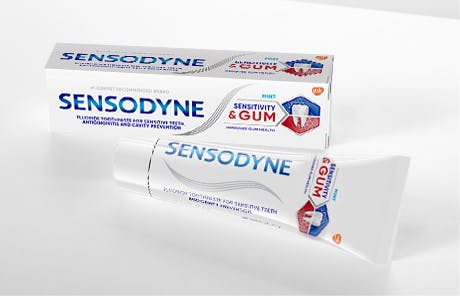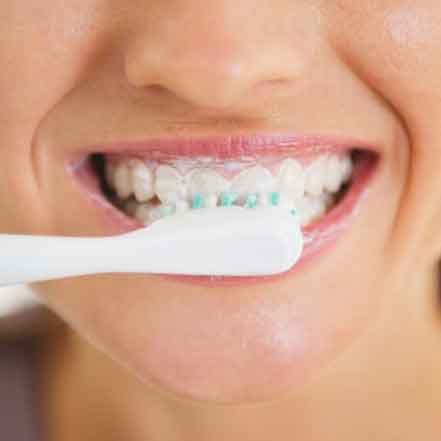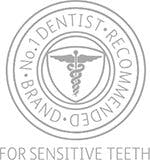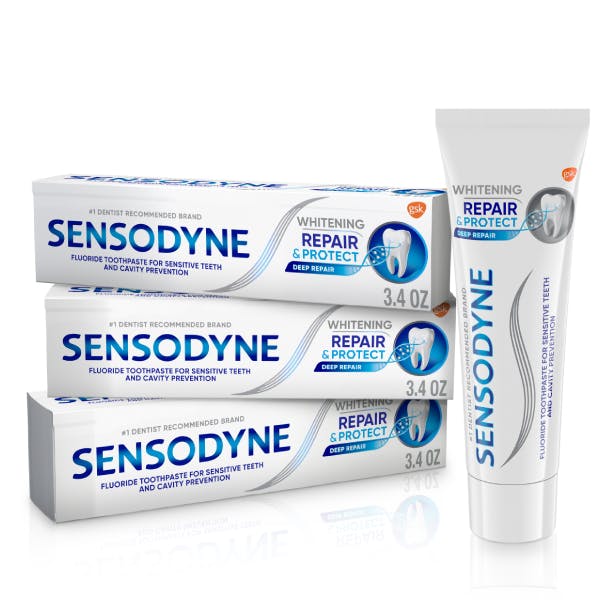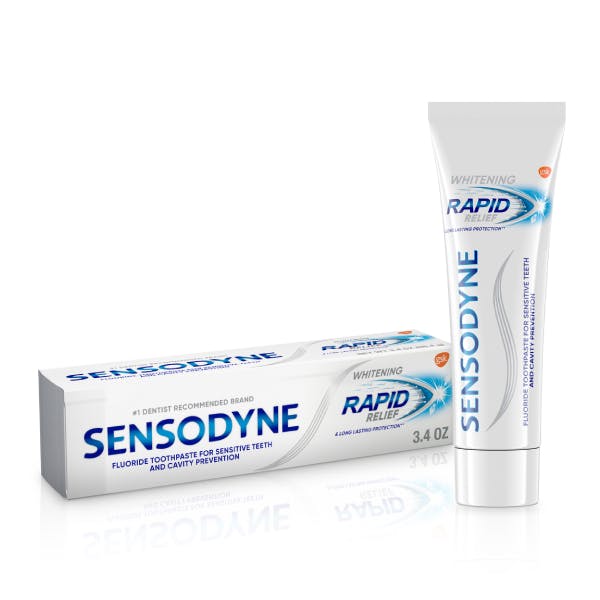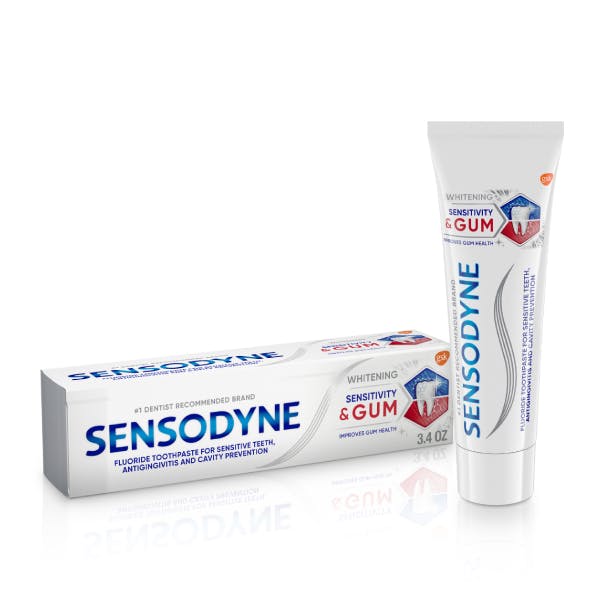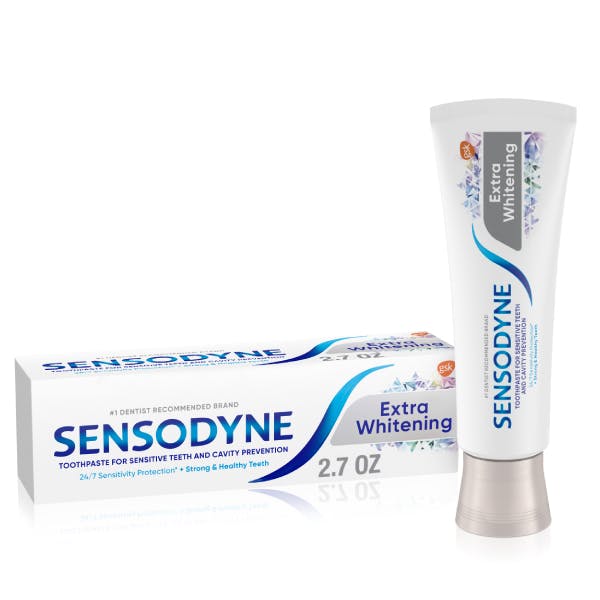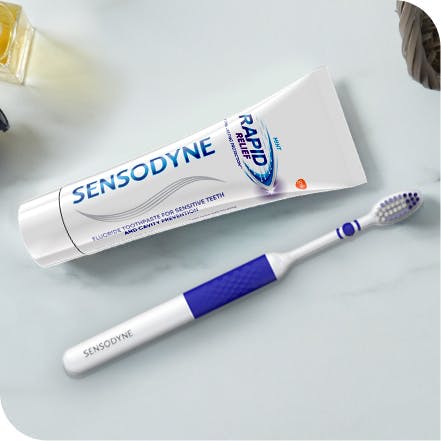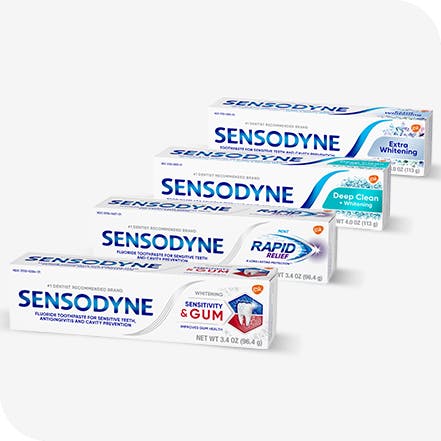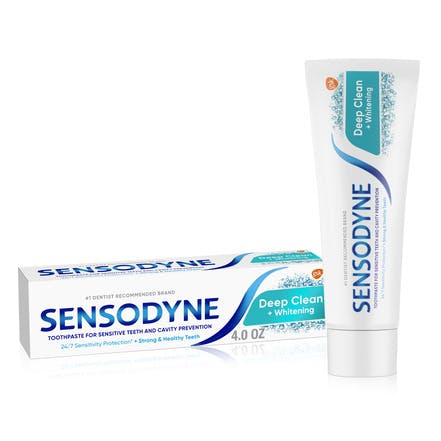Sensitive Teeth: Causes & Treatments
Unexpected pain or discomfort when consuming hot or cold food and drinks, or when you breathe through your mouth, are common symptoms of sensitive teeth. The good news is, it’s also treatable – and with our helpful guide, you can discover the main causes, symptoms and best ways to manage tooth sensitivity.1
Visit your dentist if tooth sensitivity lasts more than a few weeks.2
What Is Tooth Sensitivity?
If you get a short, sharp, painful sensation in your teeth when you bite into an ice cream, take a sip of an icy drink or slurp a mouthful of hot soup, chances are you have sensitive teeth.1
Tooth sensitivity is an exaggerated response to stimuli such as hot, cold, sweet or acidic foods and drinks, exposure to cold air and even brushing your teeth.1, 2
What Do Sensitive Teeth Feel Like?
Symptoms of sensitive teeth can range from a mild twinge to considerable discomfort. Pain can come and go, and may be worse on some occasions than others.2 Depending on the cause of your sensitivity, you may not feel pain in every tooth.

Why Are My Teeth Sensitive?
To understand the answer to this question, it helps to know a little about the structure of your teeth. Each tooth consists of the crown, which is the visible part of the tooth, and the root, which anchors each tooth into your jaw. Components of the crown include:3
- Tooth enamel. The hard, white-looking layer that protects the sensitive inner parts of each tooth. Tooth enamel is the hardest material in your body – even stronger than bone.4
- Cementum. A thin, protective layer of bone-like tissue under the gum line that protects the tooth root.
- Dentin. A layer of softer tissue which contains tiny canals or “tubules.”
- Pulp. The soft tissue deep inside each tooth that contains blood vessels, connective tissue and nerves.
If for any reason the enamel starts to wear away or erode, your tooth’s dentin is exposed. When this happens, nerve signals pass to the tooth root and from there to the brain – meaning that things like eating popsicles or drinking hot drinks, which normally don’t cause a reaction, can suddenly trigger pain and sensitivity.1
What Causes Sensitive Teeth?
A range of factors can lead to tooth sensitivity, but there are two main underlying reasons: enamel loss and gum recession.2
Causes of enamel loss include:2
- Over-zealous brushing. Brushing too vigorously or too often.
- Acid erosion. From acidic foods and drinks such as sugary sports drinks and sodas.
Causes of gum recession include: 2,5
- Brushing too hard. This can injure the gum tissue.
- Gum disease. A common oral health disease that can cause receding gums.
- Your genes. Regardless of how you care for your teeth, you may be genetically susceptible to gum recession.
- Smoking. Tobacco products increase plaque buildup on teeth, which can lead to a greater risk of gum recession over time.
Professional and at-home teeth whitening (bleaching) treatments may cause temporary sensitivity, although this should disappear within a short time of stopping treatment.6
Learn more about whitening sensitive teeth.
How to Help Treat Sensitive Teeth
It is possible to ease the pain of sore, sensitive teeth so they are less troublesome and easy to manage. Maintaining a good oral health routine is key. Brushing twice a day, every day, with Sensodyne toothpastes for tooth sensitivity relief is an easy way to alleviate symptoms, providing long-lasting sensitivity protection.1
Ways to Keep Your Mouth Healthy
If you're wondering how to manage tooth sensitivity or how to soothe a tooth sensitive to cold, heat and more, there are a number of ways:
- Start using Sensodyne toothpaste. Sensodyne has a wide range of toothpastes formulated to offer long-lasting protection for sensitive teeth, such as Sensodyne Rapid Relief Extra Fresh and Sensodyne Rapid Relief Mint.
- Brush twice a day, every day. Brush gently with a soft-bristled toothbrush for two minutes each time to keep teeth and gums clean and healthy.7
- Floss daily. Making flossing a part of your daily tooth care routine helps maintain healthy gums.7
- Visit your dentist regularly. Schedule checkups for every six months or as advised by your dentist.7
40%
of people have sensitive teeth
Most of whom are between the ages of 20 and 50.
Find out if you have sensitivity by taking our quick quiz. It takes less than a minute to complete.

How Sensodyne Can Help Tooth Sensitivity
Sensodyne is specially formulated to relieve and protect against tooth sensitivity and is the number one dentist-recommended toothpaste brand for sensitive teeth. It works by creating a barrier over sensitive areas or by soothing the nerves inside your tooth, ultimately offering long-lasting sensitivity protection when you brush with it twice a day, every day.
Find out where to buy Sensodyne toothpaste, and for discounts on dental care, get to know Altogether Dental.
- Sensitive Teeth: Causes and Treatment. Journal of the American Dental Association.
Link - Sensitive Teeth. Oral Health Foundation.
Link - Tooth. Mouth Healthy.
Link - 5 Reasons Your Smile is Stronger Than You Think. Mouth Healthy.
Link - Gum Recession: Causes, Prevention, Surgery and Treatment. Cleveland Clinic.
Link - Whitening. American Dental Association.
Link - Brushing Your Teeth. Mouth Healthy.
Link


